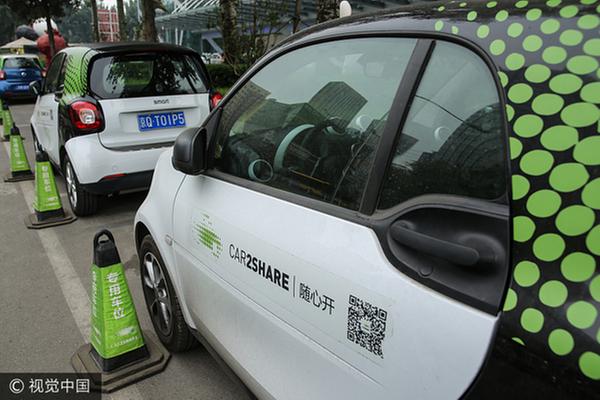New rule to cities: Ease car sharing

 |
| Shared cars are parked in Beijing. [Photo/VCG] |
City governments and private property managers have been encouraged to cut parking fees and even allocate free spaces for shared cars as a way to promote the nascent business.
Similar to the model used for shared bikes, motorists can now rent cars parked in public areas simply by scanning a QR code using a smartphone app.
Last year, dozens of car-sharing enterprises operated more than 26,000 vehicles in China, according to consultancy firm Roland Berger, which estimates the number will hit 600,000 by 2025.
To help the sector flourish, local authorities should ease parking charges, while shopping malls, residential communities and other areas should set aside spaces for these vehicles, according to a central government guideline released on Tuesday.
Car-sharing companies also were urged to improve their services online and offline, as well as to use new energy vehicles, with charging facilities installed close to designated parking areas.
The guideline, which covers the entire car rental industry, was issued by the Ministry of Transport and the Ministry of Housing and Urban-Rural Development. It aims to protect customers' rights, improve car rental services and traffic networks, and promote the industry's healthy development.
"The car rental business has been well-developed in China for a long time. However, along with the innovation of technology and services, the guideline also solves some of the difficulties of the car-sharing business," said Li Yanxia, an associate researcher of the China Academy of Transportation Sciences.
She said the national guideline encourages city authorities to draw up more detailed plans based on local conditions.
Since the first car rental companies established in China in 1989, the industry has grown to more than 6,300 companies, according to the Transport Ministry.
The number has increased by 20 percent each year. But 93 percent of car rental companies own fewer than 50 cars. The market leaders, such as Shenzhou Zuche and eHi, account for 20 percent of the market, figures from the ministry show.
Unlike traditional car rental services, car-sharing services take advantage of modern technologies such as GPS and mobile internet.
Such services improve user experience and offer an alternative for urban commuting, easing growing demand for private cars and parking space, the guideline said.
- A glimpse of Xi's global insights through maxims quoted in 2024
- China's 'Ice City' cracks down on ticket scalping in winter tourism
- Iron stick yams revitalize Wenxian county
- Party chief of Guilin under investigation
- Two radio telescopes put into use to support deep space exploration
- Joint action transforms Mekong region




































